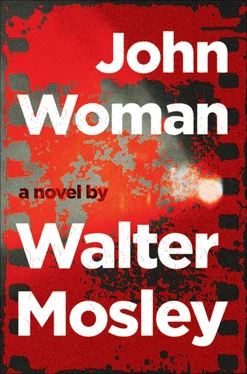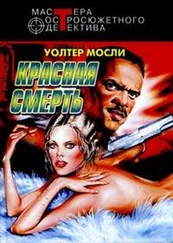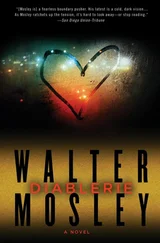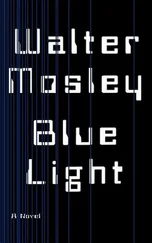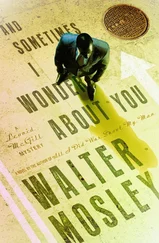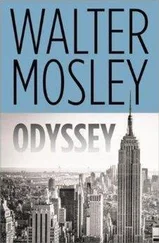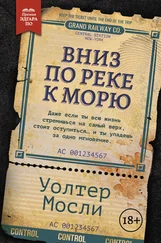“Of course not. I’m merely playing my part. Without you I couldn’t do it. And you will gain invaluable experience that will serve you well for the rest of your life.”
“I was gonna kill you,” Pete admitted. “I was gonna beat you to death with that bat.”
Something about the young man’s confession was a balm to John’s restless mind. He was certain that he would have killed Pete before the rugby thug knew there was a knife. The fact that he came so close to murder brought back a long-dormant memory: moments after killing Chapman Lorraine Cornelius felt completely at peace.
“Go on back to your dorm, Pete,” John said. “You did good.”
“Maybe I’ve done it all wrong,” John said after Pete had gone.
He was talking to, or at least looking at, the discarded bat in the corner next to the empty chair.
His father’s Chapman Lorraine was Jimmy Grimaldi and his Excalibur a heart brave enough to stand unarmed against an unbeatable foe.
John read the same books as Herman, had tried his best to disappear into stories that were both true and indecipherable. But rather than a king in exile he’d become a kind of Tallyrand agitating between the ruling classes, the workers and the revolutionists. Where Herman had been heroic John was just a scarecrow, forgotten in a barren field that had once been flush and fruitful.
Remembering that true self-abnegation was possible only for a man willing to die he replaced the knife and took from the drawer a yellow legal pad and a number two pencil. It took hours to write, erase, write again, reject and finally decide upon the first few words of his second Deck Rec lecture. He didn’t trust himself to deliver an impromptu talk this time. His life had been a long series of spontaneous acts — it was time for a change.
We have come here today not to be lectured to or addressed but rather to look into ourselves and see what it is that makes us possible. After writing these words Professor John Woman sat back in his chair and read them over and over until he was satisfied that this was the right beginning for the rest of his life.
John spent the night at his Prometheus Hall office, writing.
There were so many cross-outs and erasures that at around three in the morning he redrafted the speech. As he rewrote, new ideas formed. What he had written lost its power, so he was compelled to begin again. A few minutes past six he began practicing the speech, making notes and rewording, changing sentence structures and adding asides. By eight he was finished. An hour later he lay down on the hard floor behind his desk and slept. A dream brought him to the secret room in the projectionist’s booth. He became Chapman Lorraine sealed away, nearly forgotten. In that stasis there was no guilty conscience or demonic elation. He simply took Lorraine’s place for a short while, affording his victim some relief.
When John awoke he felt stiff but exonerated. He’d done penance for the murder and accepted that he and his father were not the same. They loved each other but these loves did not encompass a singularity. They were different men: Herman a teacher and Cornelius an unaffiliated samurai. The elder Jones suffered the curse of physical weakness with superior moral strength in a world that sneered at the first and could not believe the second. John was a trickster, a coyote gratefully licking the bloody wounds of his savior.
On the walk over to Deck Rec John noticed flimsy yellow flags flapping in the breezes around the damning broadsides. It wasn’t until he investigated that he remembered the assignment he gave the two hundred or so attendees of the previous day’s class.
One sheet read:
I threw my cat from the roof of my parents’ house when I was five and angry that they wouldn’t let me ride my bike around the block. The cat, Puddin, didn’t die but I knew that I had tried to kill her. I had sex with my mother’s best friend, Dora N., when she was taking me to visit a college. My mother was supposed to take me but she had strep throat and Dora stood in. I cheat whenever I can on tests and schoolwork. I need the grades so that I can get student aid.
I have no excuses but at least I know that I am wrong.
The fourth confession was more cogent:
I did a hit and run when I was drunk one time. The guy didn’t die and he got better, pretty much. I should have turned myself in but I didn’t and now it’s too late to do anything about it.
The sixteenth revelation made John stop and think:
I steal. Whenever I can get away with it I take things that don’t belong to me. It could be a framed picture or change off somebody’s desk, an iPod or a pair of shoes. I once took a very expensive vase from the apartment of a house I’d only been to once. I unlocked the back door when I was there in the daytime and came in that night when the guy that lived there was asleep. He was my boyfriend’s best friend so I knew him pretty well. I was scared I might get caught. After, I went right home and fucked my boyfriend hard.
I keep the things I take in a chest in a secret place and visit them sometimes. I think I’m wrong but I can’t help it. And, anyway, nobody gets hurt that bad.
There were hundreds of sheets tacked, pinned and pasted to the walls and trees, announcement boards and lampposts near the broadsides: many more confessions than there had been people in the class.
John realized that his assignment had started an instant craze among students who were already deeply disturbed by the allegations against their professors.
Very few were out and about on the campus that day. John could hear the whisper of sheets in the breeze calling out to whoever would listen: testaments of young people finally able to admit secrets that were worms in their hearts.
“Professor,” Theron James called when John came through the automatic doors of the student recreation center.
“Dean James,” said the deconstructionist killer.
“Are you ready?” James asked, taking John by the arm.
“Absolutely.”
This was the first time he and the dean had touched except to shake hands. The intimacy was the broad-shouldered academician’s way of explaining the importance of the situation.
“The president will be introducing you,” James said.
“I thought this was Eubanks’s show?”
“It was decided that since she was listed on the broadside her introducing you might taint the way people heard your words,” Theron said guiding John by the elbow. “There are monitors set up throughout the center, in the library and in all the offices. Almost everyone on campus will hear you.”
“And the Platinum Path?” John asked.
Theron stopped, his fingers clenching John’s biceps. The scarred scholar looked his protégé in the eye and said, “Yes... that’s right.”
They continued their walk toward the auditorium.
John noticed that the aisles and halls of the recreation center were crowded with people. Students and faculty, administrators and maintenance staff were standing around talking and watching.
“Aren’t you going to ask me what I’m going to say?” John asked Theron as they approached the closed doors of the auditorium.
“Certainly not.”
“Why?”
“This is your battle to win or lose, Professor Woman. I wouldn’t dare interfere.”
Saying this, the dean knocked on the auditorium door. A burly student looked out, then admitted James and his charge. John recognized the big sophomore, he’d taken D-History 101 in John’s first semester at NUSW.
“Carlyle,” John said, reaching for the name. “Francis Carlyle.”
The glowering student suddenly smiled.
“Glad you’re doing this, Professor,” he said. “People need something to hang on to.”
Читать дальше
